At Carbon Nutrition, we know that food is about more than fuel — it’s about culture, family, and connection. But the amount of food on our plates also matters. Portion sizes directly affect how we feel after meals, how our body manages energy, and our long-term health.
In this post, we’re going to break down why portion sizes matter and offer practical Afro-Caribbean examples so you can enjoy meals that are balanced, satisfying, and culturally authentic.
Why Portion Size Matters
Getting portions right helps adults to:
- Balance nutrition – get the nutrients you need without unnecessary calories.
- Support weight management – maintain a healthy body weight by avoiding overeating.
- Control blood sugar – especially important for people with pre-diabetes or diabetes.
- Aid digestive comfort – prevent the bloating and discomfort of very large meals.
- Protect long-term health – reduce the risk of heart disease, type 2 diabetes, and other diet-related conditions.
African & Caribbean Portion Sizes (for the average healthy adult)
1. Starchy Foods & Staples
These foods give you energy, so aim for moderate portions that keep you full without overdoing it.
- Cooked rice, millet, maize, yam, cassava, or plantain: ~150 g (about two heaped tablespoons)
- Uncooked rice, maize, or millet: ~50 g dry (roughly fist-sized)
2. Proteins & Legumes
Protein supports muscle health and keeps you satisfied between meals.
- Cooked beans, lentils, or pigeon peas: ~120–150 g (about a cupped handful)
- Soups or stews with beans, fish, or meat: ~1 cup (200–250 ml)
- Cooked fish, poultry, goat, oxtail, or offal: ~140 g (about the size of your palm)
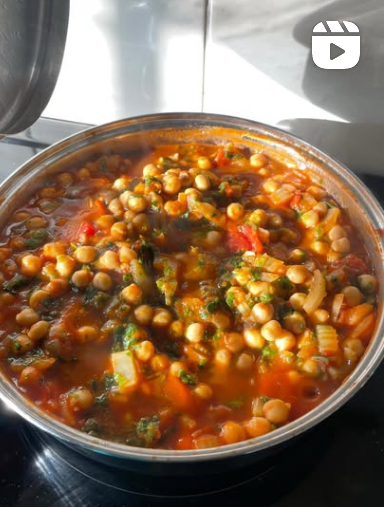
3. Non-Starchy Vegetables
Non-starchy vegetables add fibre, vitamins, and minerals to every meal.
- Callaloo, okra, spinach, cabbage, pumpkin, cauliflower: ~80 g raw or cooked (about one cup or a handful of raw leaves)
Aim for at least three cupped handfuls per day.
4. Fruits & Juices
Fruit adds natural sweetness and nutrients, but portion control matters.
- Fresh fruit: ~80 g per portion (e.g., one apple, two kiwis, or a mango slice)
- Fruit juice or smoothies: Limit to 150 ml per day to avoid quick sugar spikes.
5. Daily Portion Targets (for an Average Adult)
Balance your day with:
- 5+ portions of fruits and vegetables
- 3–4 portions of starchy foods
- 3–4 portions of protein and pulses/beans
- 2–3 portions of dairy or plant-based alternatives (if consumed)
- Small amounts of oils and spreads — around 1 teaspoon of olive or rapeseed oil per meal.
- Coconut and palm oils should be limited or used sparingly.
Examples of Balanced African & Caribbean Meals
Mix and match for variety and satisfaction:
- Two-mix: rice + pigeon peas; or yam + fried fish
- Three-mix: rice + stewed beans + callaloo
- Four-mix: rice + legumes (beans or peas) + protein (fish or meat) + non-starchy vegetables (side dish)
These combinations help you enjoy meals that are satisfying, culturally authentic, and nutrient-rich.
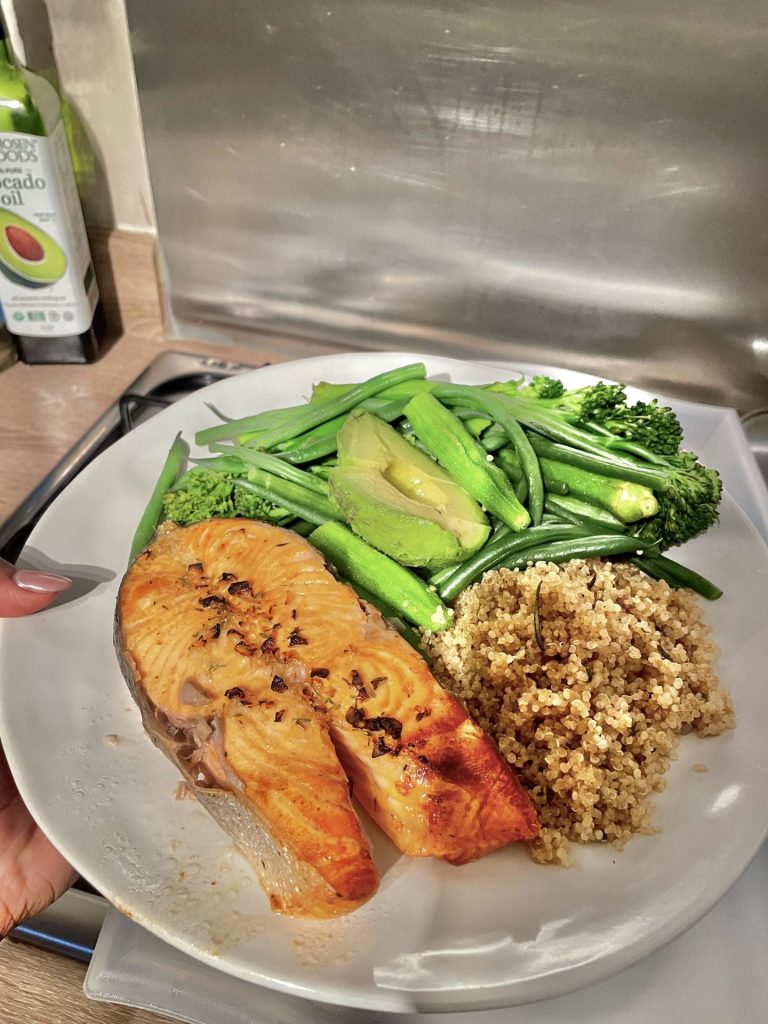
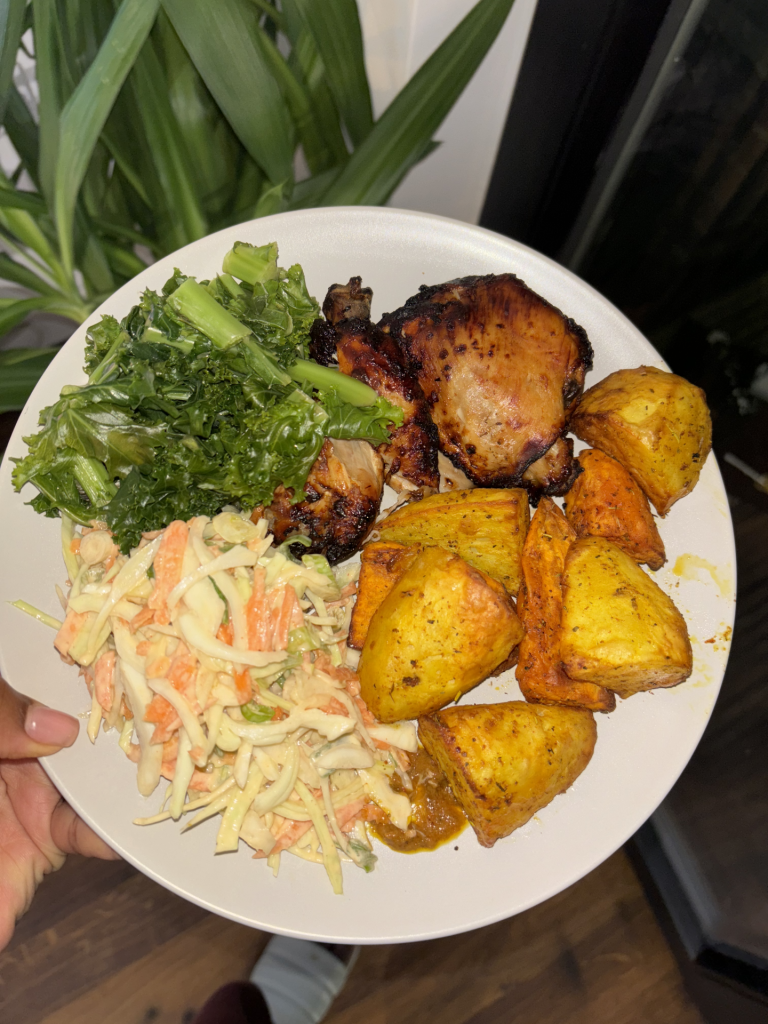
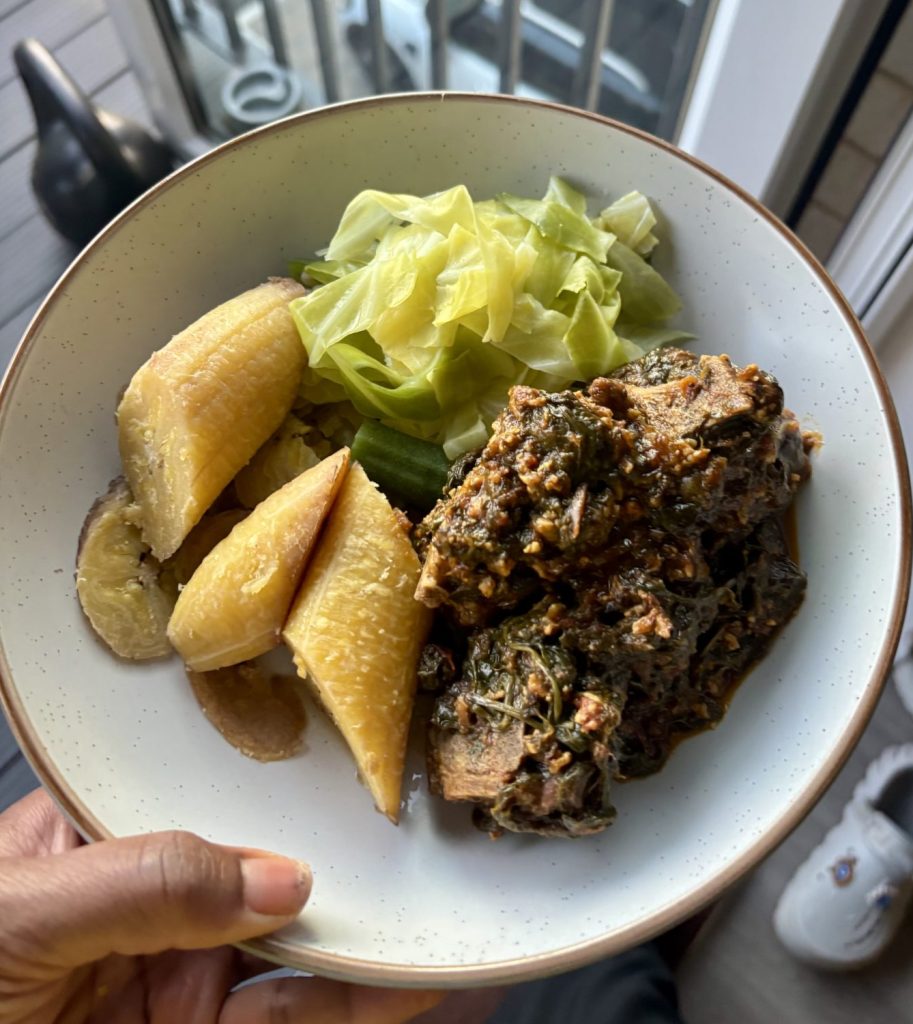
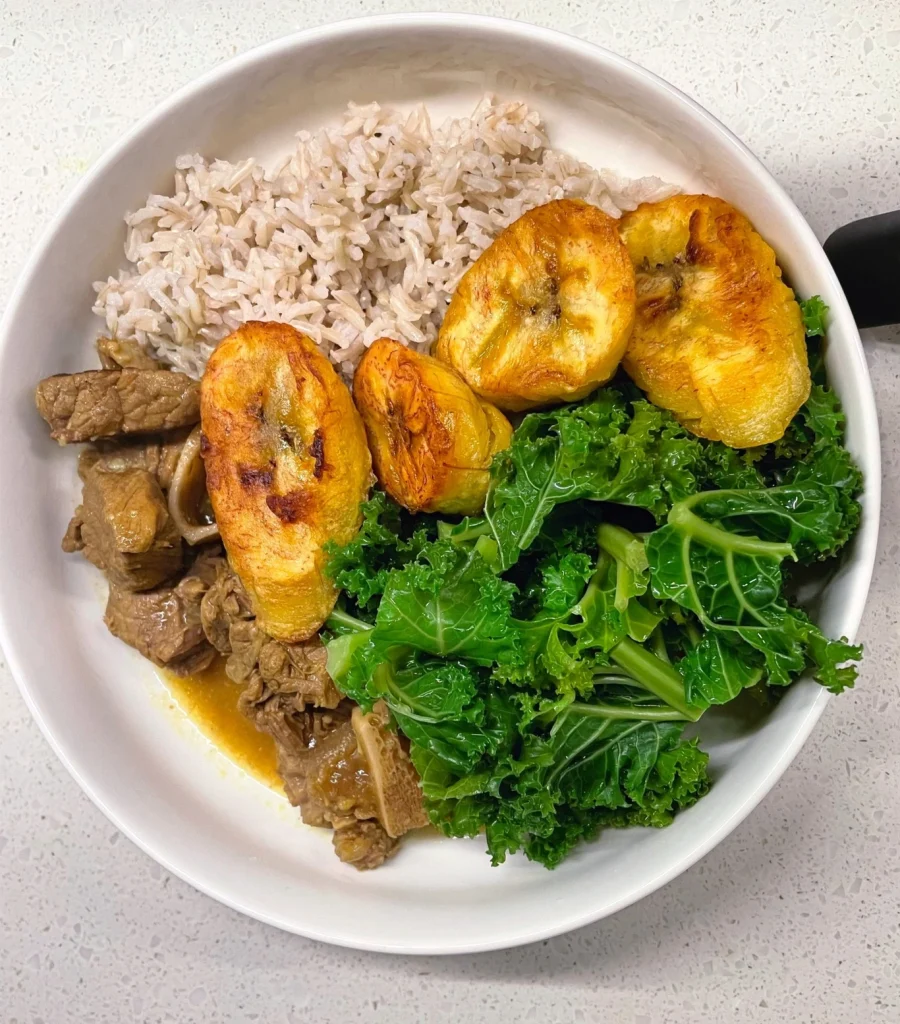
Need Personalised Support?
At Carbon Nutrition, we provide expert, culturally sensitive nutrition guidance tailored to your lifestyle.
This post is for information purposes only and does not replace advice from your dietitian or healthcare professional.
If you’d like personalised advice, feel free to book a free 10-minute consultation today.
